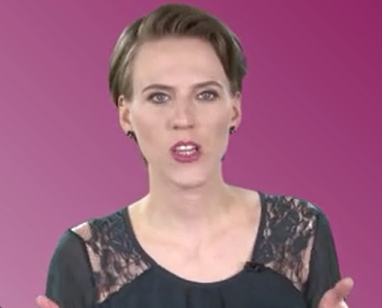(单词翻译:单击)
This is Everyday Grammar. I'm Lucija.
欢迎收看《每日语法》栏目,我是露西佳。
And I'm Kaveh. Lucija, what are you reading there?
我是卡维。露西佳,你在读什么?
It's a science fiction novel about time travel.
一部关于时空穿越的科幻小说。
Time travel, huh? Does it have anything in there about Time Clauses?
时空穿越?里面有关于时间状语从句的内容吗?
Well, I'm not sure, but I can check.
我不确定,但我会查查看。
A clause is a group of words that has a subject and a verb.
从句是指有主语和动词的词组。
A Time Clause introduces the clause with a word such as "before" or "after".
时间状语从句会带有“before” 和 “after”这样的单词。

To form a Time Clause you use:
时间状语从句的组成是:
Before+Subject+Verb or After+Subject+Verb
Before+主语+动词或After+主语+动词
Before I went to work...
在我工作之前...
After we finished our project...
在我们结束项目之后...
A Time Clause can follow a main clause or be in front of a main clause.
时间状语从句可以跟在主句后面,也可以放在它前面。
Before I went to work, I ate breakfast.
我在工作前会吃早餐。
We celebrated with friends after we finished our project.
我们完成项目后与朋友一起庆祝。
Sorry to interrupt, but you didn't explain what a main clause is.
抱歉,打断一下,你还没解释什么是主句呢。
Oh, I thought you already knew!
噢,我以为你知道呢!
A main clause is a complete sentence, like, "I ate breakfast."
主句是一个完整的句子,比如“我吃早餐了。”
Oh, yeah, I knew that. So you were saying?
噢,这样啊,我知道了。所以你的意思是?
So, I was saying that you can put a Time Clause in front of or behind a main clause and there would be no difference in the meaning.
所以我说的是你把时间状语从句放在主句前还是主句后对句意没影响。
We went to dinner after we finished our work.
我们结束工作后去吃饭。
After we finished our work, we went to dinner.
我们结束工作后去吃饭。
And that's Everyday Grammar.
以上就是今天的全部内容。


